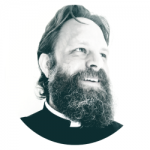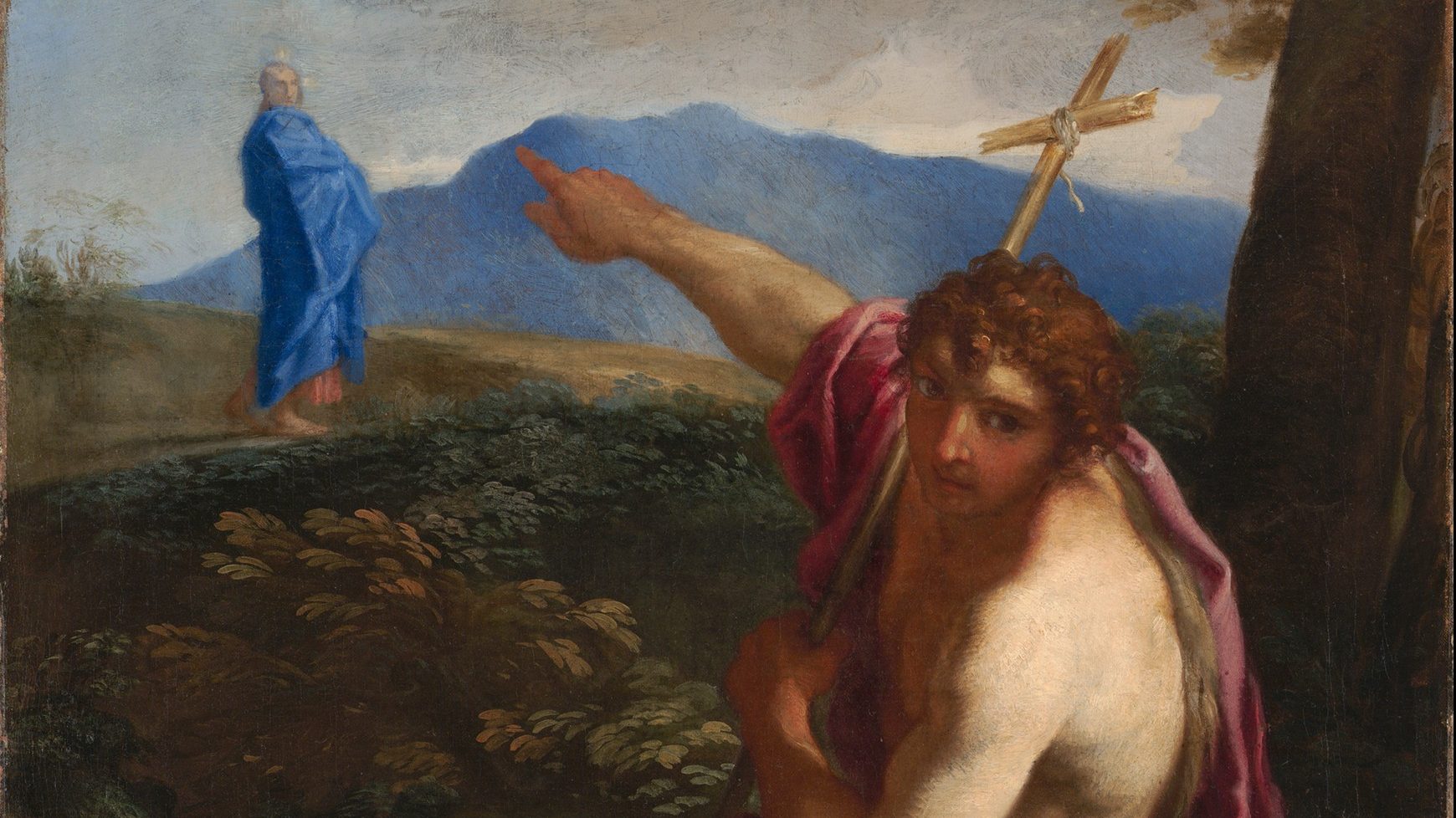What Did You Come to See?
3rd Sunday of Advent (Year A)

Two important questions are asked in this Sunday’s gospel (Mt 11:2-11). One is directed toward Jesus, and the other comes from Jesus. The question put to Jesus comes from the disciples of St. John the Baptist: “Are you the one who is to come?”
To understand what they are asking, we have to know some context. These are disciples (students) of John the Baptist. The gospels present John as a sort of wild-man figure. He’s described as living in the desert, wearing clothing made of camel’s hair, and eating locusts and wild honey. He is shouting, “Repent, for the kingdom of God is at hand!” If you met someone who looked like John today, you might think he was a homeless person. Your first instinct probably wouldn’t be, “I want to become this guy’s disciple.”
But John was more than a eccentric hermit with an apocalyptic bent. Most biblical scholars today believe that John belonged to a Jewish sect called the Essenes. Judaism at the time of Christ was divided into various factions. We are most familiar with the Pharisees and the Sadducees because they are frequently mentioned in the gospels, but there were others such as the Zealots (the apostle Simon was a Zealot), and the Essenes.
The Essenes were convinced that the Messiah (God’s Anointed One) foretold by the prophets was coming soon, so they established a compound outside of Jerusalem at a place called Qumran, to prepare themselves for the Messiah’s coming. They went out into the wilderness, into the desert, both because they believed the Messiah would come from that direction, but also to separate themselves from worldly society to better devote themselves to penance, prayer, and listening to the Word of God. They were in some ways the first monks, practicing strict asceticism, including a vegetarian diet, and they celebrated a ritual baptism for the forgiveness of sins. Sound like anyone we know?
Being formed by the Essene community, John the Baptist was on the lookout for the Messiah. He had his eyes and ears open for signs of the Lord’s coming. So when Jesus begins to perform his public miracles, John — who at this point was in prison for speaking the truth about King Herod’s unlawful marriage — sends his followers to ask Jesus: are you the one?
Here is Jesus’ answer:
“Go and tell John what you hear and see: the blind regain their sight, the lame walk, lepers are cleansed, the deaf hear, the dead are raised, and the poor have the good news proclaimed to them. And blessed is the one who takes no offense at me.”
Mt 11:4b-6
At this point in his ministry, in addition to proclaiming the kingdom of God (Mt 4:17), Jesus had been curing diseases (Mt 4:24), cleansing lepers (Mt 8:1-4), making the lame walk (Mt 8:5-13, 9:1-8), restoring sight to the blind (Mt 8:27-31), and even raising the dead (Mt 9:18-26).
Jesus is not just listing off his accomplishments. He is quoting from the prophet Isaiah who said that the kingdom of God would be heralded by these signs (see Is 26:19; 29:18-19; 35:5-6; 61:1). John, familiar with the prophecies, would know exactly what Jesus was saying: I’m the one you’ve been waiting for.
Then Jesus turns his attention to the crowd and poses a question to them. What did you go out to the desert to see? What are you looking for? This is an important question for us today, because if we don’t know what we are looking for, how will we know when we find it?
Jesus tells us what we should not be looking for. The first is “a reed swayed by the wind.” A reed bends in whatever direction the wind is blowing. Jesus is saying, “Are you looking for someone to tell you whatever is popular at the moment? Whatever the opinion-makers of the world say is right? Whatever’s politically correct?” If that’s what you want, you can get that on Instagram. No need to go out to the desert.
Or did you come to see “someone dressed in fine clothing?” In other words, are you looking for someone rich in the things of the world? Are you looking for celebrity and influence, power and wealth? Those people are in “royal palaces,” Jesus says. They are in the halls of power, whether it be government, finance, or media. If that’s what you want, look in those places. They aren’t in the desert.
So what did you come to see?
Jesus asks the crowd: When you made the trek from your homes to hear John the Baptist preach, what were you hoping to find? A prophet? Jesus tells them that John is more than a prophet: he is the one foretold of old who would prepare the way for the Messiah. That’s why John is considered the greatest of all the prophets: not for who he is, but for who points to. The messenger is far less important than the message. John is the voice crying out in the wilderness. Jesus is the Eternal Word.
When we make the effort to come to Mass, or just to come to the church to pray, we are, in a sense, going out into the desert. We are leaving behind our daily distractions and the ordinary things of the world, looking for something extraordinary. Jesus asks us today: When you come to the Church, what are you seeking? When you open the scriptures to read God’s word, what are you looking for? When you bow your head to pray in the silence of your room at night, who do you hope is listening?
The third Sunday of Advent is called Gaudete Sunday — Latin for “rejoice” — from the Entrance Antiphon for the Mass: “Rejoice in the Lord always; again I say, rejoice. Indeed, the Lord is near” (Phil 4:4-5). The One you are seeking is nearer than you know.
Is your heart troubled? You are not alone. There is a longing in all of our hearts that prevents us from finding the peace we desire in this world. That’s because the peace we desire doesn’t come from this world.
The Old Testament readings throughout Advent come from the prophet Isaiah, who tells of a coming kingdom where even the deserts bloom with flowers and rejoice in the Lord. If even the desert will be given abundant life at the coming of the Lord, how much more life — how much more joy — will He grant to the desert of our hearts?
Just like those who followed John found something greater than John, those who seek God will find something greater than we could ever imagine. We rejoice today because Jesus comes to us with this message: “Be strong. Fear not. Here is your God. I am here” (cf Is 35:4).

